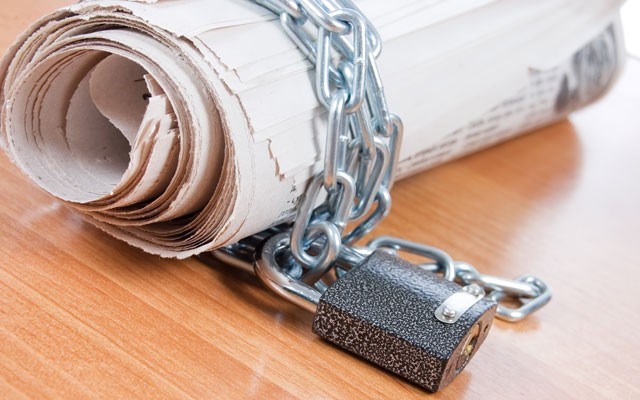In my line of work, covering arts and culture for Pique, I am dependent on press releases.
Every day I get far more than is relevant. There are usually around 30 in my in-basket by the time I hit my desk in the morning, enough of them seem to be invitations to album launches in Los Angeles or Toronto. I am lucky if five relate to what is happening in Whistler. Dozens more arrive through the day.
The ones I can use are vital to me. They give me the basics of something happening here, something that is important for readers to know as they navigate how they to spend their time at the resort. I hate missing anything.
As arts editor and as a news writer previously, I know releases are important. I never have time to be completely on top of what is happening at the resort; I can't visit or call every place I am responsible for on a given day. I need the venues or their publicists to contact me.
Then I take it from there and I make the story. I see journalism as a craft and not a science, so I build a story from scratch.
When it comes to filling space in the paper, the relevant releases compete with each other and with phone calls, other submissions and people turning up at reception to talk to me in person. Trying to do right by them all is just part of the job.
But the line must be drawn when it comes to receiving information that tries to force the journalistic investigation down a particular path or influence the outcome of a line of inquiry.
This is more crucial for news than for entertainment, for good reason, though both need the trust of readers (and of the other stakeholders, in my case other arts creators and organizations. All need to be confident that the playing field is level). The independence of our information should be without question.
So it is with some concern that I read the Toronto Star story that the Harper government, already well known for denying or limiting media access to the prime minister and other MPs and government officials such as scientists, is spending $1.25 million a year on News Canada Ltd through Public Works Canada.
The company provides free content without copyright to media, very attractive in this era of financial hardships for traditional press and broadcasting, where the CBC is experiencing death by 1,000 cuts. The stories are a tight 400 words in length and the broadcast material is prepackaged and ready to go. It's not cheap to produce any media like that, and to some strapped editors it must look like a godsend.
The Star goes on to explain that while articles must be credited to News Canada, there is nothing that appears to show that the stories are in any way sponsored or government approved.
These stories find their ways into community newspapers and on television and radio.
One story example cited in the Star is an undated video on the News Canada website about the Nutrition North program, which states as a fact that fresh food levels have been increased in Canada's north, with the repercussion of grocery stories lowering prices.
Food security in the Arctic, where a quarter slice of watermelon can cost almost $14 and a pre-cooked take-home chicken will run to $64, has been getting some attention here in the south. Nutrition and even hunger is being discussed.
The auditor general, no less, has said that the Aboriginal Affairs department does not actually know if News Canada's claims are true, the Star reports.
Scripts are also available on the News Canada website, ready for news anchors to read out on air. One, about First Nations land claims settlements, has this introduction for reading out: "How do you right a past wrong? Well the government of Canada has been working towards finding solutions to do just that." (sic)
The script actually ends with: "The future looks bright. More 'win-win' solutions are in the works to bring closure and justice for all." Viewers are then asked to visit the Aboriginal Affairs website.
Yeah, really independent. The News Canada contract is due to be renewed in January 2015.
Allowing for full response, News Canada told the Star that newspaper and other media editors are the ones deciding whether or not to use the material they supply gratis. They also noted that the Star used a (non-federal government) story supplied by News Canada in Oct. 2013.
OK, thanks for that. I feel much better.
It's not like the federal government hasn't already dropped huge sums projecting their views onto Canadian consciousness. They've spent $413 million in taxpayers' dollars on advertising in the last five years, with $93.2 million spent last year alone.
This includes an over $2.5 million publicity blitz to promote the Canada Jobs Grant during Hockey Night in Canada and elsewhere in 2013. It was a program that didn't yet exist, waiting on involvement from the provinces at the time. The grant kicked in the last half of 2014.
How do you want to receive your news? How do you want to trust it? Would you prefer to have your cousin in Mississauga send you true tales from the Internet made by some doomer guy in Kansas, along with missives on how investing in gold is still an awesome idea?
I hope not.




